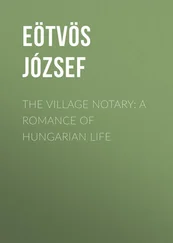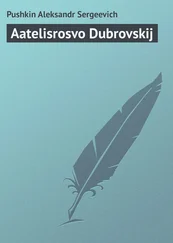Aleksandr Pushkin - Eugene Oneguine [Onegin]. A Romance of Russian Life in Verse
Здесь есть возможность читать онлайн «Aleksandr Pushkin - Eugene Oneguine [Onegin]. A Romance of Russian Life in Verse» весь текст электронной книги совершенно бесплатно (целиком полную версию без сокращений). В некоторых случаях можно слушать аудио, скачать через торрент в формате fb2 и присутствует краткое содержание. Год выпуска: 2007, Жанр: Поэзия, на английском языке. Описание произведения, (предисловие) а так же отзывы посетителей доступны на портале библиотеки ЛибКат.
- Название:Eugene Oneguine [Onegin]. A Romance of Russian Life in Verse
- Автор:
- Жанр:
- Год:2007
- ISBN:нет данных
- Рейтинг книги:4 / 5. Голосов: 1
-
Избранное:Добавить в избранное
- Отзывы:
-
Ваша оценка:
- 80
- 1
- 2
- 3
- 4
- 5
Eugene Oneguine [Onegin]. A Romance of Russian Life in Verse: краткое содержание, описание и аннотация
Предлагаем к чтению аннотацию, описание, краткое содержание или предисловие (зависит от того, что написал сам автор книги «Eugene Oneguine [Onegin]. A Romance of Russian Life in Verse»). Если вы не нашли необходимую информацию о книге — напишите в комментариях, мы постараемся отыскать её.
Eugene Oneguine [Onegin]. A Romance of Russian Life in Verse — читать онлайн бесплатно полную книгу (весь текст) целиком
Ниже представлен текст книги, разбитый по страницам. Система сохранения места последней прочитанной страницы, позволяет с удобством читать онлайн бесплатно книгу «Eugene Oneguine [Onegin]. A Romance of Russian Life in Verse», без необходимости каждый раз заново искать на чём Вы остановились. Поставьте закладку, и сможете в любой момент перейти на страницу, на которой закончили чтение.
Интервал:
Закладка:
33
The heroes of two romances much in vogue in Pushkin's time: the former by Madame Cottin, the latter by the famous Madame Krudener. The frequent mention in the course of this poem of romances once enjoying a European celebrity but now consigned to oblivion, will impress the reader with the transitory nature of merely mediocre literary reputation. One has now to search for the very names of most of the popular authors of Pushkin's day and rummage biographical dictionaries for the dates of their births and deaths. Yet the poet's prime was but fifty years ago, and had he lived to a ripe old age he would have been amongst us still. He was four years younger than the late Mr. Thomas Carlyle. The decadence of Richardson's popularity amongst his countrymen is a fact familiar to all.
34
Referring to Richardson's "Clarissa Harlowe," "La Nouvelle Heloise," and Madame de Stael's "Delphine."
35
"Melmoth," a romance by Maturin, and "Jean Sbogar," by Ch. Nodier. "The Vampire," a tale published in 1819, was erroneously attributed to Lord Byron. "Salathiel; the Eternal Jew," a romance by Geo. Croly.
36
A young married couple amongst Russian peasants reside in the house of the bridegroom's father till the "tiaglo," or family circle is broken up by his death.
37
Marriages amongst Russian serfs used formerly to take place at ridiculously early ages. Haxthausen asserts that strong hearty peasant women were to be seen at work in the fields with their infant husbands in their arms. The inducement lay in the fact that the "tiaglo" (see previous note) received an additional lot of the communal land for every male added to its number, though this could have formed an inducement in the southern and fertile provinces of Russia only, as it is believed that agriculture in the north is so unremunerative that land has often to be forced upon the peasants, in order that the taxes, for which the whole Commune is responsible to Government, may be paid. The abuse of early marriages was regulated by Tsar Nicholas.
38
Courtships were not unfrequently carried on in the larger villages, which alone could support such an individual, by means of a "svakha," or matchmaker. In Russia unmarried girls wear their hair in a single long plait or tail, "kossa;" the married women, on the other hand, in two, which are twisted into the head-gear.
39
It is thus that I am compelled to render a female garment not known, so far as I am aware, to Western Europe. It is called by the natives "doushegreika," that is to say, "warmer of the soul"—in French, chaufferette de l'ame. It is a species of thick pelisse worn over the "sarafan," or gown.
40
A Russian annotator complains that the poet has mutilated Dante's famous line.
41
It is well known that until the reign of the late Tsar French was the language of the Russian court and of Russian fashionable society. It should be borne in mind that at the time this poem was written literary warfare more or less open was being waged between two hostile schools of Russian men of letters. These consisted of the Arzamass, or French school, to which Pushkin himself together with his uncle Vassili Pushkin the "Nestor of the Arzamass" belonged, and their opponents who devoted themselves to the cultivation of the vernacular.
42
The "Blago-Namierenni," or "Well-Wisher," was an inferior Russian newspaper of the day, much scoffed at by contemporaries. The editor once excused himself for some gross error by pleading that he had been "on the loose."
43
Hippolyte Bogdanovitch—b. 1743, d. 1803—though possessing considerable poetical talent was like many other Russian authors more remarkable for successful imitation than for original genius. His most remarkable production is "Doushenka," "The Darling," a composition somewhat in the style of La Fontaine's "Psyche." Its merit consists in graceful phraseology, and a strong pervading sense of humour.
44
Parny—a French poet of the era of the first Napoleon, b. 1753, d. 1814. Introduced to the aged Voltaire during his last visit to Paris, the patriarch laid his hands upon the youth's head and exclaimed: "Mon cher Tibulle." He is chiefly known for his erotic poetry which attracted the affectionate regard of the youthful Pushkin when a student at the Lyceum. We regret to add that, having accepted a pension from Napoleon, Parny forthwith proceeded to damage his literary reputation by inditing an "epic" poem entitled "Goddam! Goddam! par un French—Dog." It is descriptive of the approaching conquest of Britain by Napoleon, and treats the embryo enterprise as if already conducted to a successful conclusion and become matter of history. A good account of the bard and his creations will be found in the Saturday Review of the 2d August 1879.
45
Evgeny Baratynski, a contemporary of Pushkin and a lyric poet of some originality and talent. The "Feasts" is a short brilliant poem in praise of conviviality. Pushkin is therein praised as the best of companions "beside the bottle."
46
The samovar , i.e. "self-boiler," is merely an urn for hot water having a fire in the center. We may observe a similar contrivance in our own old-fashioned tea-urns which are provided with a receptacle for a red-hot iron cylinder in center. The tea-pot is usually placed on the top of the samovar .
47
Count Tolstoy, a celebrated artist who subsequently became Vice-President of the Academy of Arts at St. Petersburg. Baratynski, see Note 43.
48
Yazykoff, a poet contemporary with Pushkin. He was an author of promise—unfulfilled.
49
Stanza left unfinished by the author.
50
The Abbe de Pradt: b. 1759, d. 1837. A political pamphleteer of the French Revolution: was at first an emigre, but made his peace with Napoleon and was appointed Archbishop of Malines.
51
The "kibitka," properly speaking, whether on wheels or runners, is a vehicle with a hood not unlike a big cradle.
52
The allusions in the foregoing stanza are in the first place to a poem entitled "The First Snow," by Prince Viazemski and secondly to "Eda," by Baratynski, a poem descriptive of life in Finland.
53
The Russian clergy are divided into two classes: the white or secular, which is made up of the mass of parish priests, and the black who inhabit the monasteries, furnish the high dignitaries of the Church, and constitute that swarm of useless drones for whom Peter the Great felt such a deep repugnance.
54
Refers to the "Sviatki" or Holy Nights between Christmas Eve and Twelfth Night. Divination, or the telling of fortunes by various expedients, is the favourite pastime on these occasions.
55
During the "sviatki" it is a common custom for the girls to assemble around a table on which is placed a dish or basin of water which contains a ring. Each in her turn extracts the ring from the basin whilst the remainder sing in chorus the "podbliudni pessni," or "dish songs" before mentioned. These are popularly supposed to indicate the fortunes of the immediate holder of the ring. The first-named lines foreshadow death; the latter, the "kashourka," or "kitten song," indicates approaching marriage. It commences thus: "The cat asked the kitten to sleep on the stove."
Читать дальшеИнтервал:
Закладка:
Похожие книги на «Eugene Oneguine [Onegin]. A Romance of Russian Life in Verse»
Представляем Вашему вниманию похожие книги на «Eugene Oneguine [Onegin]. A Romance of Russian Life in Verse» списком для выбора. Мы отобрали схожую по названию и смыслу литературу в надежде предоставить читателям больше вариантов отыскать новые, интересные, ещё непрочитанные произведения.
Обсуждение, отзывы о книге «Eugene Oneguine [Onegin]. A Romance of Russian Life in Verse» и просто собственные мнения читателей. Оставьте ваши комментарии, напишите, что Вы думаете о произведении, его смысле или главных героях. Укажите что конкретно понравилось, а что нет, и почему Вы так считаете.











